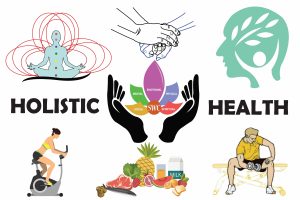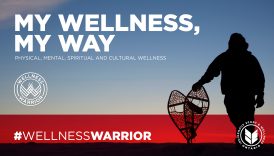Exploring Holistic Approaches to Health and Wellness

Introduction to Holistic Health and Wellness
What is Holistic Health?
Holistic health is an approach that considers the whole person—body, mind, and spirit—in the pursuit of optimal health and wellness. Rather than merely addressing physical symptoms or isolated issues, holistic health embraces the interconnectedness of various aspects of a person’s life. This perspective encourages individuals to seek balance and harmony within themselves. For instance, someone struggling with chronic headaches might look not just to medication, but also to factors like stress management, dietary habits, and sleep quality. An individualized approach that considers lifestyle, emotional wellness, and environmental influences can lead to a more comprehensive solution.
- Exploring Holistic Approaches to Health and Wellness
- Introduction to Holistic Health and Wellness
- What is Holistic Health?
- Benefits of Holistic Approaches
- The Mind-Body Connection
- Understanding the Relationship
- Techniques to Improve Connection
- Nutrition for Holistic Wellness
- Importance of Balanced Diet
- Superfoods for Overall Health
- Physical Activity and Holistic Wellness
- Exercise as a Holistic Practice
- Integrating Movement into Daily Routine
- Mental Health Strategies
- Meditation and Mindfulness
- Stress Management Techniques
- Healing Through Alternative Therapies
- Acupuncture and Traditional Chinese Medicine
- Ayurveda and Holistic Healing Practices
Benefits of Holistic Approaches
Adopting a holistic approach to health comes with numerous benefits that extend beyond mere physical well-being. Here are some key advantages:
- Enhanced Well-Being: Holistic health promotes a greater overall sense of happiness and fulfillment by addressing emotional and spiritual needs alongside physical ones.
- Improved Stress Management: Individuals learn to cope with stress more effectively, reducing its physical and mental impacts.
- Empowerment: This approach encourages individuals to take an active role in their health, fostering independence and self-awareness.
- Longer-Lasting Health Solutions: By addressing root causes instead of just symptoms, holistic approaches can lead to sustainable health improvements.
Incorporating holistic practices into one’s life can transform health in profound ways. As individuals explore their unique wellness journeys, they often discover valuable insights that not only enhance their health but enrich their lives as a whole. Through intentional living and self-care, anyone can embark on a path toward holistic wellness.
The Mind-Body Connection
Understanding the Relationship
The mind-body connection is a powerful and often underestimated aspect of holistic health. It’s the recognition that our thoughts, emotions, and mental states can significantly impact our physical health and vice versa. For example, stress can manifest as physical pain, digestive issues, or even chronic illnesses. Consider a time when you felt anxious before a big presentation. Perhaps your heart raced, your palms became sweaty, and you felt a knot in your stomach. This is a clear illustration of how mental stress translates into physical sensations. Research shows that maintaining a strong mind-body connection can improve overall well-being, enhance immune function, and promote faster healing.
Techniques to Improve Connection
Improving the mind-body connection is attainable through a variety of effective techniques. Here are some practices that anyone can incorporate into their daily routine:
- Mindfulness Meditation: Spend a few minutes each day meditating to increase awareness of your thoughts and feelings. This can help you remain grounded during stressful situations.
- Yoga: This ancient practice combines physical movement, breath control, and meditation to enhance physical health while fostering mental clarity and emotional resilience.
- Breathing Exercises: Deep breathing can calm the nervous system. Try inhaling for a count of four, holding for four, and exhaling for a count of four to promote relaxation.
- Journaling: Putting thoughts on paper can help clarify emotions and provide a healthy outlet for stress. Consider a nightly journaling practice to reflect on your day.
By nurturing the mind-body connection, individuals can cultivate a deeper sense of self-awareness and enhance their overall health. In doing so, they unlock the potential for a richer, more balanced life.
Nutrition for Holistic Wellness
Importance of Balanced Diet
Transitioning into holistic wellness naturally leads us to the realm of nutrition, where a balanced diet plays a pivotal role. Nutrition is more than just fuel for the body; it’s about feeding your mind, emotions, and spirit too. A balanced diet includes a variety of nutrients essential for overall health, such as carbohydrates, proteins, fats, vitamins, and minerals. Think about it: when you indulge in a heavy meal loaded with processed foods, how do you feel afterward? Many people experience fatigue, sluggishness, or irritability. On the flip side, a colorful plate filled with fresh veggies, whole grains, and lean proteins can energize you and improve your mood. Here are some key components of a balanced diet:
- Fruits and Vegetables: Aim for a rainbow on your plate to ensure a variety of nutrients.
- Whole Grains: Choose brown rice, quinoa, and whole wheat pasta for sustained energy.
- Healthy Fats: Incorporate avocados, nuts, and olive oil for heart health.
- Lean Proteins: Options like chicken, fish, beans, and legumes support muscle health and recovery.
Superfoods for Overall Health
In addition to maintaining a balanced diet, incorporating superfoods can significantly boost your nutritional intake. Superfoods are nutrient-dense foods packed with antioxidants, vitamins, and minerals that promote health. Here are some noteworthy examples:
- Blueberries: Known for their antioxidant properties, they support brain health and may improve memory.
- Kale: This leafy green is a powerhouse of vitamins A, C, and K and can be easily added to salads or smoothies.
- Quinoa: A complete protein, quinoa is a versatile grain perfect for salads, bowls, or side dishes.
- Chia Seeds: These tiny seeds are rich in omega-3 fatty acids and fiber, making them great for digestion and heart health.
By acknowledging the significance of a balanced diet and enhancing it with superfoods, individuals can nurture their bodies holistically, paving the way for improved wellness and vitality. Incorporating these nutritional principles into daily life can lead to positive changes that resonate across all dimensions of health.
Physical Activity and Holistic Wellness
Exercise as a Holistic Practice
As we continue to explore the facets of holistic health, physical activity emerges as a cornerstone that intertwines mind, body, and spirit. Exercise is not merely about achieving a certain body shape or weight; it is a holistic practice that enhances overall well-being. Engaging in physical activity triggers the release of endorphins, the body’s natural mood elevators, fostering emotional stability and mental clarity. For many, exercise can also serve as a form of meditation. Picture yourself jogging through a serene park, the rhythm of your breath syncing with your footsteps, allowing worries to fade into the background. This mindful engagement can lead to improved stress management and heightened self-awareness. Key benefits of incorporating regular exercise into your routine include:
- Improved Mood: Regular physical activity can alleviate symptoms of anxiety and depression.
- Better Sleep: Exercise can help regulate sleep patterns, leading to more restorative rest.
- Enhanced Energy Levels: Despite initial fatigue after a workout, individuals often experience increased energy throughout the day.
Integrating Movement into Daily Routine
Integrating movement into daily life is easier than one might think. You don’t have to commit hours to the gym; small changes can create significant impacts on holistic wellness. Here are some tips to seamlessly incorporate more physical activity into your daily routine:
- Take the Stairs: Opt for stairs instead of elevators when possible.
- Walking Meetings: If you have a call or meeting, consider walking while you chat.
- Active Commuting: If feasible, walk or cycle to work instead of driving.
- Stretch Breaks: Set a timer to take short breaks and stretch during long periods of sitting.
By weaving movement into the fabric of everyday life, individuals can cultivate a holistic approach that nurtures physical, mental, and emotional health. Regular activity not only enhances physical fitness but also enriches overall wellness, leading to a more fulfilling life. Ultimately, the journey toward holistic wellness is about finding joy in movement and making it an integral part of daily experiences.
Mental Health Strategies
Meditation and Mindfulness
As we strive for holistic wellness, it’s crucial to address mental health through effective strategies like meditation and mindfulness. These practices allow individuals to cultivate a deeper awareness of their thoughts and feelings, promoting emotional resilience. Many find that dedicating just a few minutes each day to meditation can lead to profound benefits. Think about a time when your mind was racing with worries or to-do lists. Finding a quiet moment to sit and focus on your breath can ground you and bring clarity. Research shows that regular meditation can reduce anxiety, improve focus, and enhance overall satisfaction in life. To begin, consider incorporating these simple techniques:
- Guided Meditations: Use apps or online resources to follow guided practices tailored to your needs.
- Breath Awareness: Sit quietly, focus solely on your breathing, and observe going in and out without judgment.
- Body Scan: Lie down and mentally scan your body, releasing tension as you focus on different areas.
Stress Management Techniques
In tandem with meditation, effective stress management techniques can significantly improve mental wellness. Stress is a common part of life, but how we respond can make all the difference. It’s essential to develop a toolkit of skills to manage stress effectively. Here are some practical techniques to consider:
- Time Management: Organizing tasks and prioritizing can reduce feelings of overwhelm.
- Physical Activity: As discussed previously, exercise can be a powerful stress relief method.
- Connecting with Nature: Spend time outdoors—nature has a calming effect.
- Social Support: Talking to friends or family members can provide relief and perspective.
By weaving meditation, mindfulness, and stress management into daily life, individuals can create a stronger foundation for mental health. These strategies not only aid in coping with life’s challenges but also foster a sense of peace and well-being, reinforcing the holistic approach to health that nurtures the mind, body, and spirit. With intentional practice, anyone can enhance their mental wellness and embrace a healthier, more balanced life.
Healing Through Alternative Therapies
Acupuncture and Traditional Chinese Medicine
As we delve deeper into holistic health, alternative therapies like acupuncture and Traditional Chinese Medicine (TCM) emerge as compelling options for healing. Acupuncture involves the insertion of fine needles into specific points on the body to balance energy (or Qi) and promote healing. Many people report experiencing relief from chronic pain, headaches, and even stress after just a few sessions. When I first tried acupuncture, I was skeptical. However, I soon discovered that the treatment not only alleviated my lower back pain but also improved my overall mood and energy levels. This positive experience is not uncommon, as TCM emphasizes treating the whole person rather than isolated symptoms. Key principles of TCM include:
- Yin and Yang Balance: Maintaining harmony between opposing forces in the body.
- Five Elements Theory: Utilizing wood, fire, earth, metal, and water concepts to understand health.
- Herbal Medicine: Incorporating natural herbs and plants to support healing.
Ayurveda and Holistic Healing Practices
Similarly, Ayurveda, one of the world’s oldest holistic healing systems, emphasizes balance in various aspects of life. Rooted in Indian philosophy, Ayurveda integrates diet, lifestyle, and natural remedies tailored to individual constitutions, known as doshas—Vata, Pitta, and Kapha. When exploring Ayurveda, consider these foundational practices:
- Dietary Adjustments: Eating according to your dosha can optimize health. For instance, those with a Pitta constitution may benefit from cooling foods.
- Herbal Remedies: Ayurveda offers a variety of herbs like Ashwagandha and Turmeric to support wellness.
- Daily Routines (Dinacharya): Establishing a consistent daily routine, including sleep, meal times, and self-care practices.
Integrating acupuncture and Ayurveda into your wellness journey can provide profound benefits. These alternative therapies not only address physical ailments but also foster a deeper connection to the self. By embracing these holistic practices, individuals can experience enhanced healing and establish a more balanced, fulfilling life. Ultimately, alternative therapies add valuable dimensions to the journey toward overall wellness, addressing the body, mind, and spirit in harmony.





